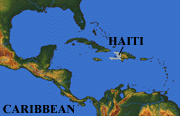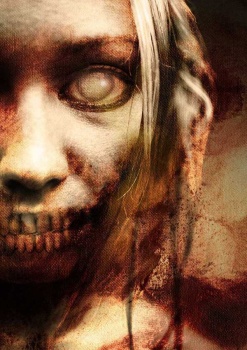Early Zombie Movies
In 20th century American culture, the idea of zombies has traditionally been portrayed almost exclusively through the medium of film. The prototype for early zombie movies was White Zombie (1932), which took its subject matter directly from the zombie myths of Hatian folklore. White Zombie, one of the celibrated horror films of the "Universal era" (which also included important versions of Dracula, Frankenstein, The Wolfman and The Mummy) starred Bela Lugosi as a rich Haitian businessman who had taken upon himself to win the hand of a lady by turning her husband into a zombie. He had hoped that, by doing this, he would be able to rid her of her connection to her husband and thus clear the way for she and his romantic union.
Other zombie movies of the 30s and 40s followed suit insofar as they generally portrayed zombies as they existed in Haitian folklore: as beings whose brains had been zapped by some "master" who was then able to control their actions. Many of these pictures, such as The Voodoo Man (1944) and I Walked With a Zombie (1943) maintained that zombies were directly rooted, geographically and thematically, in Haitian myth. Other films, such as Revolt of the Zombies (1936) and Zombies on Broadway (1945) kept the theme but altered the geographic location. Also, while some of these films reinforced the idea that zombies were, in fact, the reanimated dead, some films portrayed zombies as being the products of a sort of malevolent hypnosis. In such films, the monsters were not "dead" at all, but merely humans who were reduced to a trance-like state and who were, again, controlled by a "master."
During the "Hammer Films era" of the 1950s and 1960s, zombies began to a adopt a more sinister air. Films such as I Eat Your Skin (1961) and The Plague of the Zombies (1965) offered zombies that were forced to maintain their posthumous existence by actually consuming human flesh. This version of the zombie was generally still "controlled" by a "master," but was awakened from its deathly state by some sort of supernatural or otherwise extraordinary force (satanic incantation, etc.). Here we see the invention of the "zombie-as-cannibal" type that was to characterize the genre for years to come. Virtually any given zombie from one of these movies was little more than "an utter cretin, a vampire with a lobotomy." (Twitchell, 265).
Source: http://www.umich.edu/~engl415/zombies/zombie.html
{ 0 comments }


